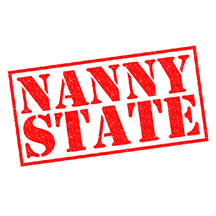 A new tax on certain non-alcoholic beverages in Philadelphia has been enacted, not to deter customers from consuming caloric beverages, but to make the city more money.
A new tax on certain non-alcoholic beverages in Philadelphia has been enacted, not to deter customers from consuming caloric beverages, but to make the city more money.
On Thurs. June 16, 2016, Philadelphia became the first state to enact a 1.5-cent-per-ounce tax on soda, tea, sports and energy drinks. This is the first success of its kind for “nanny state” advocates, and the success is expected to embolden nanny state tax advocates across the U.S.
The tax, like others on food and food-related items, will fall disproportionately on lower income individuals.
The National Center for Public Policy Research’s director of Risk Analysis, Jeff Stier, has released the following statement in regards to the tax:
The only good thing about Philadelphia’s newly-imposed soda tax is that proponents were somewhat honest about it, admitting it wasn’t about improving public health. Instead, they admitted it was a money grab, albeit a highly regressive one.
Perhaps it was a wise tactical move, because soda-tax campaigners have failed to persuade scientists or the public that the tax reduces caloric consumption, obesity or diabetes.
Adding to the absurdity of this tax, Philly’s treats diet soda and full sugar alike, failing to even distinguish between sugary drinks, which, like all caloric food and beverages, can contribute to obesity, and zero or low calorie beverages. Similarly, advocates across the country are pushing to equalize cigarette and e-cigarette sin taxes, the latter of which is primarily used by adult smokers trying to lower their risk. If soda was the new tobacco, now diet soda is the new e-cigarette.
In March, Stier told the Daily Caller that “Soda tax proponents are asking us to suspend normal assumptions about human behavior and simply assume that people who reduce soda consumption to avoid the tax, won’t just make their own sugary drinks and won’t replace the calories with other high-calorie foods or drinks.”
In an op-ed in the Houston Chronicle in 2014, Stier explained the real rationale for soda taxes, “Rather simply, it is Sutton’s Law. The “law” is named after the infamous American bank robber Willie Sutton, who was incorrectly credited with answering a reporter who asked him why he robs banks by saying, “That’s where the money is.”
Stier has testified before city and state governments and has frequently been quoted in or published in the press or appeared on cable television to discuss “nanny state” issues, including New York City’s ill-fated attempt under then-Mayor Michael Bloomberg to govern the size of cups New York City residents were to be permitted to use for their beverages.




